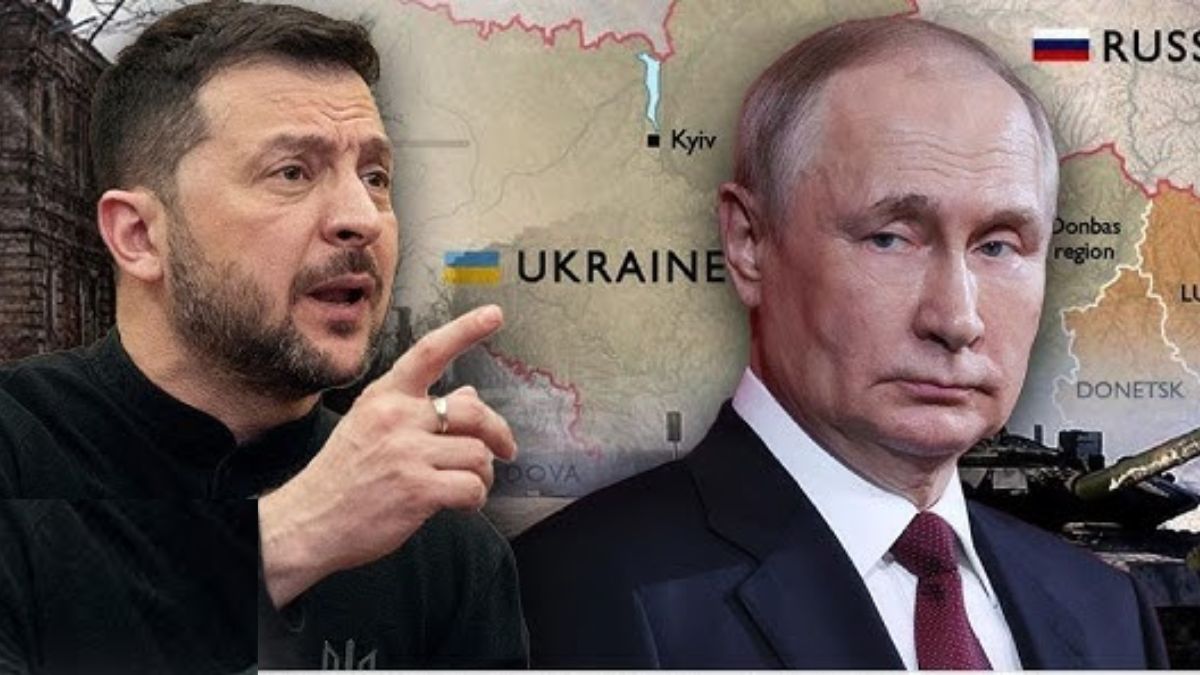Russian President Vladimir Putin is confronting a strategic dilemma after US President Donald Trump urged him to meet face-to-face with Ukrainian leader Volodymyr Zelenskyy. For years, Putin has dismissed Zelenskyy as an illegitimate Western puppet, a narrative he has used to justify Russia’s 2022 attack. Yet, refusing Trump’s request could provoke fresh sanctions from Washington while agreeing to talks risks undermining his long-held position at home.
The prospect of such a summit has become a central question following Trump’s recent meeting with Putin in Alaska and subsequent talks with Zelenskyy and European leaders in Washington.
Trump has presented the idea as a next step toward a peace process, but he himself acknowledged the tension. “They haven’t been exactly best friends,” he said, adding that any meeting would require careful groundwork.
Putin’s bind: Domestic image vs US pressure
Putin has repeatedly cast Zelenskyy as a figure without real authority, questioning his legitimacy after Ukraine extended his mandate beyond the normal term due to wartime conditions. He has argued that only “legitimate authorities” can sign binding agreements, insisting that a meeting should take place at the conclusion of peace negotiations not at their outset.
Russian officials have echoed this stance. Foreign Minister Sergey Lavrov stressed that “contacts involving top officials must be prepared with the utmost care,” Kremlin language for ruling out immediate talks. Others in Moscow have ridiculed Zelenskyy as unserious, reinforcing Putin’s reluctance to elevate him by granting direct talks.
But ignoring Trump carries risks. The US president has already warned of further sanctions if Moscow resists his peace push. For Putin, who has tried to balance battlefield escalation with the appearance of openness to diplomacy, the stakes are high.
Beyond Ukraine: Russia’s wider confrontation with the West
Analysts emphasise that the issue extends beyond Zelenskyy himself. Tatiana Stanovaya, senior fellow at the Carnegie Russia Eurasia Center and founder of R.Politik told CNN that for Putin, Ukraine is only the “battlefield” in a broader confrontation with the West. “In Putin’s eyes, Zelenskyy is not a player. Ukrainians fight only because of Western support,” she said.
Putin’s vision for negotiations with Washington stretches far beyond territorial compromises in Ukraine. He seeks a restructuring of Europe’s post–Cold War security order, something Trump might be more open to than European leaders. This is why, despite his disdain for Zelenskyy, Putin may still consider a meeting if convinced it would move broader talks with the US forward.
Impact Shorts
More ShortsHistory of failed encounters
The only previous meeting between Putin and Zelenskyy came in 2019, when hopes briefly flickered that peace might be possible after Moscow’s annexation of Crimea. Instead, disputes over implementing ceasefire measures derailed progress, and relations quickly soured. Since then, the two have not met.
Zelenskyy has long argued that a direct conversation with Putin is essential to end the war. Recently, he softened his position further by dropping a demand for a ceasefire as a precondition for talks. “I think we should meet without conditions and explore what progress can be made on the path to ending the war,” he said after consultations with Trump and European allies.
A high-risk gamble for Putin
Still, Putin has shown little inclination to accept. He has suggested resuming talks in formats such as the Istanbul channel, but with a higher-level delegation led by officials like Lavrov, avoiding a one-on-one encounter with Zelenskyy that could expose him to political risks at home.
For now, the Kremlin leader appears torn between preserving his narrative of Zelenskyy as a powerless figure and avoiding a rupture with Trump, whose role he sees as crucial to reshaping any eventual settlement.
“Putin won’t risk an ambush where all his demands are rejected,” Stanovaya added. “But if Trump can push Kyiv toward flexibility, then a meeting with Zelenskyy could suddenly become useful.”
)